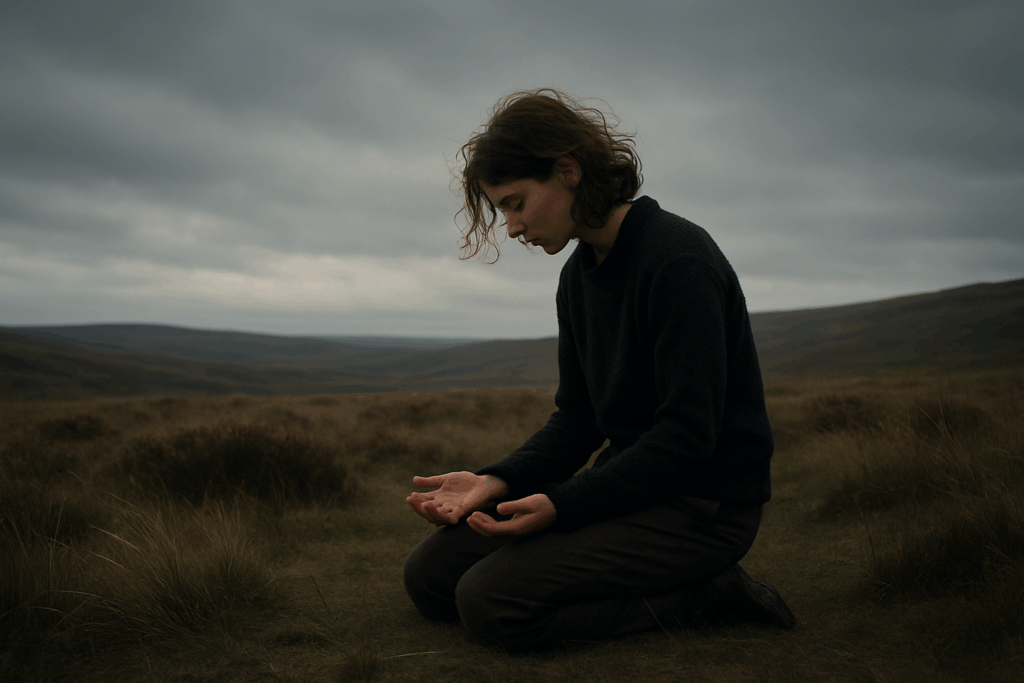
Sensitivity and Mental Health in an Unfeeling Culture
What happens when you reach out to the world with your full, feeling self – and the world doesn’t feel back?
For sensitive people, this isn’t a hypothetical question. It’s a daily reality. They walk through life with open hearts, attuned nervous systems, and deep responsiveness to beauty, pain, and meaning – and they often find themselves in a culture that values none of those things.
This post explores the toll that takes. But more than that, it offers a reframing: what if the overwhelm, the anxiety, the depression, the disorientation – were not personal defects, but soulful responses to a world that has forgotten how to feel?
Prefer to watch rather than read? Check out the video below.
The Culture That Invalidates Sensitivity
We live in a culture that exalts speed, noise, productivity, and surface-level positivity. There is little room for pause, for nuance, for grief, or for complexity. To be emotionally present in this kind of culture is often exhausting – and sometimes unbearable.
Sensitive people are told:
- “You’re too much.”
- “Don’t take it so personally.”
- “You need thicker skin.”
- “Everyone’s struggling, just get on with it.”
The underlying message is clear: If you feel deeply, the problem is you.
But what if the problem is the world’s refusal to feel?
When Mental Health Struggles Are Acts of Integrity
What if anxiety isn’t a sign of disorder, but a sign of awareness? What if burnout isn’t a personal failure, but a soul’s rebellion against unsustainable expectations? What if depression is not dysfunction, but a form of grief – for the earth, for lost futures, for disconnection?
In this light, breakdowns become not shameful but meaningful – calls to pay attention, to re-evaluate, to reconfigure.
This is not to romanticise suffering. It’s to honour it. To recognise that the psyche, like the body, protests when its needs are unmet. It doesn’t just shut down out of nowhere – it sends signals. It breaks open.
As Thomas Moore writes, the symptoms of the soul are often expressions of its longing. They are not to be fixed or silenced but listened to.
A Soulful Reframing of Breakdown
To be sensitive in a numb culture is to constantly register what others ignore. And over time, that can lead to exhaustion, despair, and disillusionment. But these states may also mark the threshold of deeper truth.
Sometimes, what looks like a breakdown is actually a breakthrough – an insistence that something in your life (or the world) is out of alignment. That your values are being compromised. That your way of being can’t keep bending to systems that don’t care.
When seen through a soulful lens, the question is not “How do I make this stop?” but “What is this trying to show me?”
What Sensitive People Need to Stay Whole
To live with sensitivity in a world that often numbs requires deep self-care and soulful scaffolding. Not the quick-fix kind, but the kind that honours your wiring.
Sensitive people often need:
- Slower rhythms and restorative solitude
- Beauty, creativity, and connection to nature
- Purposeful work that aligns with their values
- Safe relationships that validate and reflect
- Permission to feel without being pathologized
They also need community. Sensitivity thrives in mutual care, in collective rhythm, in spaces that allow for emotional honesty. Isolation makes it harder. Structure supports it.
You are not meant to carry it all alone.
Damon Zahariades’ The Art of Going Slow is a practical guide to stepping back from the cult of speed. In my review, I reflect on how his call to slow living creates space where sensitivity can be honoured rather than invalidated.
Feeling as Truth
In an unfeeling world, the sensitive soul is not dysfunctional – they are attuned. And their struggles are not signs of failure, but signals of truth.
To feel is to remain in relationship – with self, with others, with the earth, with what matters.
So, if you’re struggling right now, know this: you are not broken. You may simply be one of the few still feeling in a world that has gone numb.
And that makes you not weak – but wise.
For reflection
- Have you ever questioned whether your sensitivity was a sign of something “wrong”?
- In what ways has your sensitivity shown up as integrity rather than dysfunction?
- What changes when you see your deep feeling not as illness, but as wisdom?
Coming up next
In the final post of this series, we’ll look at how sensitivity may be part of a larger shift – not something to overcome, but something to grow into. A sign of the next kind of human emerging.
Until then, ask yourself gently: What if the part of you that’s struggling is not the part that needs fixing, but the part that needs honouring?
